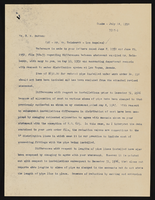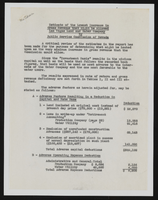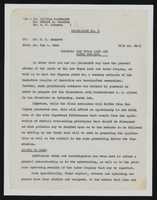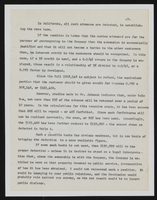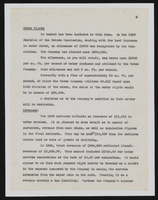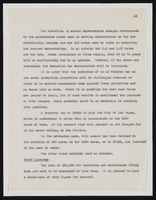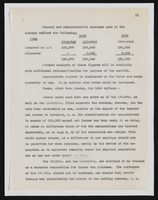Search the Special Collections and Archives Portal
Search Results
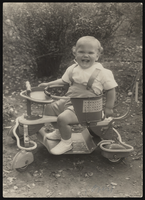
Michael Hayes (age 15 months), son of Peter Lind Hayes and Mary Healy: photographic print
Date
1890 (year approximate) to 1980 (year approximate)
Archival Collection
Description
Michael Hayes, "Guy Kibbee," age 15 months, son of Peter Lind Hayes and Mary Healy, grandson of Grace Hayes. "Press Photo News 1854 Bryant Ave. Day.9-8977Toc. (?) Wm. Cober" stamp on back of photo. Michael Hayes' birth name is Peter Michael Hayes.
Image

Architectural drawing of the Hacienda's (Las Vegas), proposed structure of the principal floor plan, May 29, 1954
Date
1954-05-29
Archival Collection
Description
Preliminary study of various aspects of the proposed Hacienda. Drawn by: H.A.B.. Original medium: pencil on paper. Efstonbuilt, Inc. of Chicago, architects; McClellan & Markwith, architects.
Site Name: Hacienda
Address: 3590 Las Vegas Boulevard South
Image
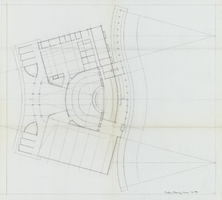
Architectural drawing of the Hacienda (Las Vegas), planning and sketches for the preliminary framing of the first floor casino, 1951-1956
Date
1951 to 1956
Archival Collection
Description
Preliminary drawing of the framing of the casino area of the Lady Luck, later the Hacienda. Original medium: pencil on paper.
Site Name: Hacienda
Address: 3590 Las Vegas Boulevard South
Image
Pagination
Refine my results
Content Type
Creator or Contributor
Subject
Archival Collection
Digital Project
Resource Type
Year
Material Type
Place
Language
Records Classification

